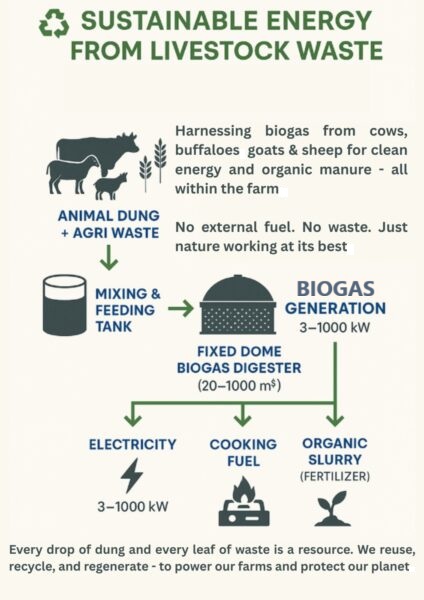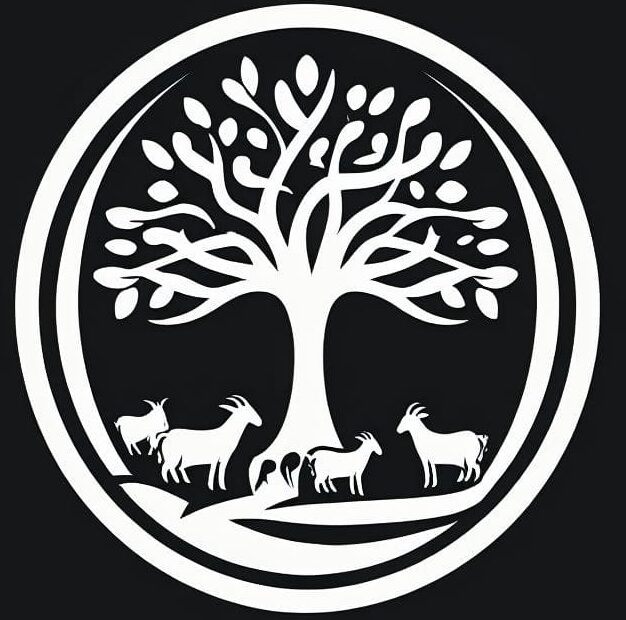inbuild captive consumption bio gas
Harnessing Biogas from Cows, Buffaloes, Goats and Sheep for clean energy and organic manure — all within the farm. No external fuel. No waste
Just nature working at its best

How Our Biogas System Works
Animal Dung + Agri Waste
↓
Mixing & Feeding Tank
↓
Fixed Dome Biogas Digester (20–1000 m³)
↓
Biogas Generation
↓
Output:
- Electricity (3–1000 kW)
- Cooking Fuel
- Organic Slurry (Fertilizer)
Biogas System Overview
Component | Details |
Animal Waste Input | Cows, Buffaloes, Goats, Sheep + Crop Residue |
Digester Type | Fixed Dome, Professionally built |
Plant Capacity | 20 m³ to 1000 m³ (modular) |
Power Output | 3 kW to 1000 kW (supports lights, pumps, fodder units, milk chilling) |
Cooking Use | Replaces LPG with in-house biogas |
Generator Capacity | 3 kVA to 125 kVA, fully biogas-powered |
Filtration System | Scrubber + H₂S, CO₂, moisture removal |
Fertilizer Output | High-quality organic manure for in-house fodder and commercial sale |
Key Benefits of In-House Biogas
Economic | Environmental | Social Impact |
No fuel cost – runs on farm waste | Reduces methane & CO₂ emissions | Cleaner farm environment |
Saves power bills (off-grid energy) | Cuts chemical fertilizer use | Promotes rural employment |
Generates sellable organic manure | Waste converted to energy & fertilizer | Local model for sustainable farming |
Less dependency on diesel/gas | Lowers carbon footprint | Encourages green practices in community |

Why It’s Right for Our Region
- Suits rural Uttarakhand’s power and waste needs
- Works year-round – even during Power cuts
- Boosts Productivity & Sustainability in Livestock Operations
At Vanam Enterprises, Our Commitment :
“ Every drop of dung and every leaf of Waste is a resource. We reuse, recyle and regenerate — to power our farms and protect our planet ”
